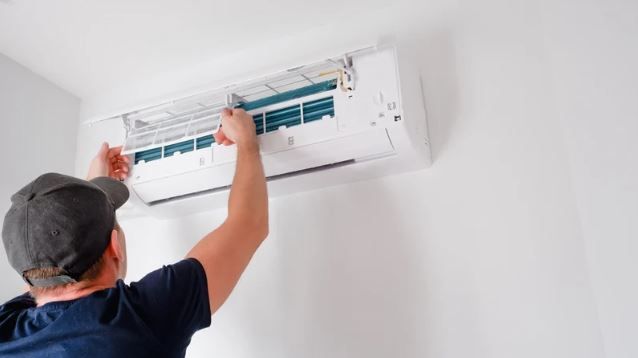What Size Air Conditioner Do I Need?
What Size Air Conditioner Do I Need?
Choosing the right size air conditioner is crucial for keeping your space comfortable and energy-efficient. An air conditioner that's too small will struggle to cool your room, while one that's too large can result in wasted energy and higher bills.
Here’s a guide to help you determine the perfect size for your needs.
Understanding Cooling Capacity
Air conditioners are rated in kilowatts (kW), which measure their cooling capacity. The size of the air conditioner you need depends on various factors, including:
- Room Size: The larger the space, the higher the cooling capacity required.
- Insulation: Well-insulated homes retain cool air better, reducing the required capacity.
- Ceiling Height: Higher ceilings mean more air volume to cool.
- Windows and Sunlight: Large windows facing east or west ,or rooms with direct sunlight may need a larger air conditioner.
- Climate: Hotter climates require more powerful systems.
Calculating the Right Size - (For Domestic Dwellings Only)
A general rule of thumb is to allow 0.12–0.15 kW of cooling capacity per square meter of floor area. Here’s how to estimate:
- Measure Your Room: Calculate the room’s floor area by multiplying the length by the width.
- Apply the Formula: Multiply the floor area by the cooling factor (e.g., 0.15 kW).
Example: For a room measuring 4m x 4m (16 square meters):
- 16 sqm x 0.15 kW = 2.4 kW air conditioner
Recommended Air Conditioner Sizes by Room Type
| ROOM TYPE | ROOM SIZE | RECOMMENDED CAPACITY (kW) |
| Bedroom (SMALL) | Up to 16sqm | 2.0 - 3.5 kW (Depending on load required) |
| Living Room (MEDIUM) | 20-40sqm | 3.5 - 6.0 kW (Depending on load required) |
| Open-Plan Space (large) | 40+sqm | 6.0 - 9.0+ kW (Depending on load required) |
Factors to Consider
- Climate
- Hot and humid areas may require higher capacity units.
- Insulation
- Ensure your home is properly insulated (roof & walls) to reduce cooling demands.
- Curtains or blinds on windows can also help.
- Multi-Room Systems
- If cooling multiple rooms, consider a ducted or multi-split system for efficiency.
- Energy Efficiency
- Look for models with a high Energy Efficiency Rating (EER) or Seasonal Energy Efficiency Ratio (SEER).
- Energy-efficient units may cost more upfront but save on running costs.
- Try to choose reputable brands within your budget - If you're looking for higher end products consider Mitsubishi Heavy Industries or Fujitsu. If you are within a smaller budget consider TCL Air Conditioning or Hisense Air Conditioning.
Why Size Matters
- Undersized Units:
- Struggle to maintain desired temperature.
- Higher energy consumption and wear.
- Oversized Units:
- Frequent cycling on and off leads to inefficiency.
- Higher upfront costs.
Consult a Professional
While this guide provides a useful starting point, it’s important to note that determining the ideal air conditioner size involves more than just room dimensions. A professional installer will consider additional factors such as your home’s layout, insulation quality, and climate to recommend the most suitable unit for your needs. Relying on expert advice ensures optimal performance and energy efficiency. Look for a company that is a dedicated air conditioning supplier/installer.
While the above guidelines can help, consulting a HVAC professional is the best way to ensure you choose the right system. They can assess your space and recommend the perfect solution tailored to your needs.

